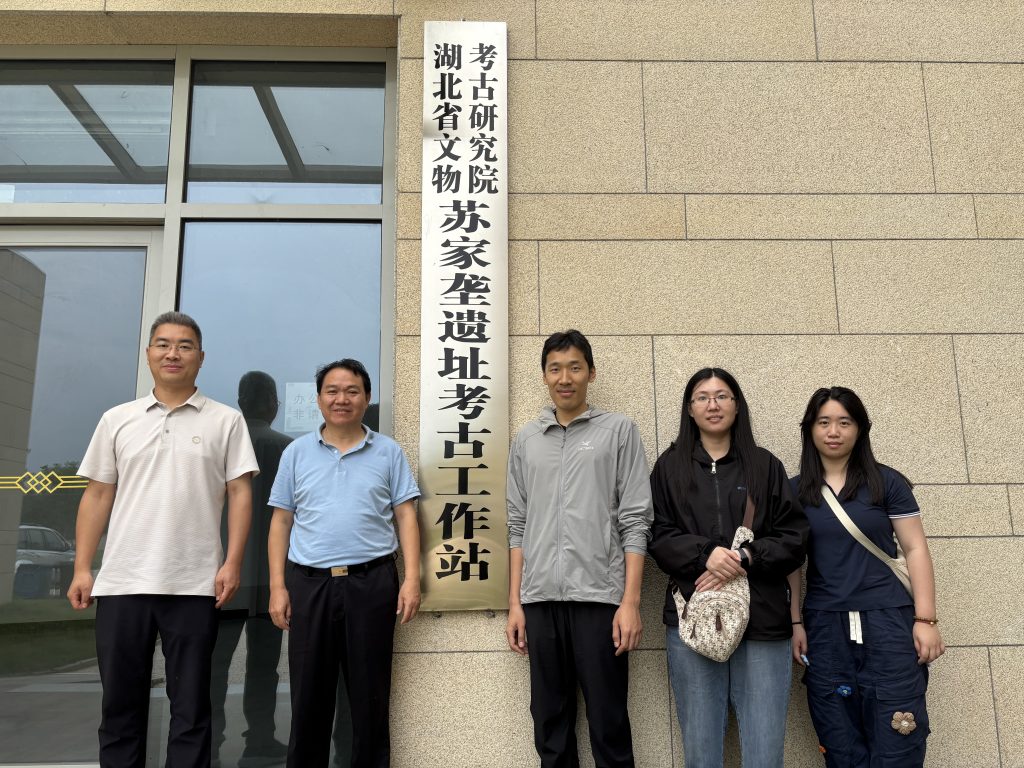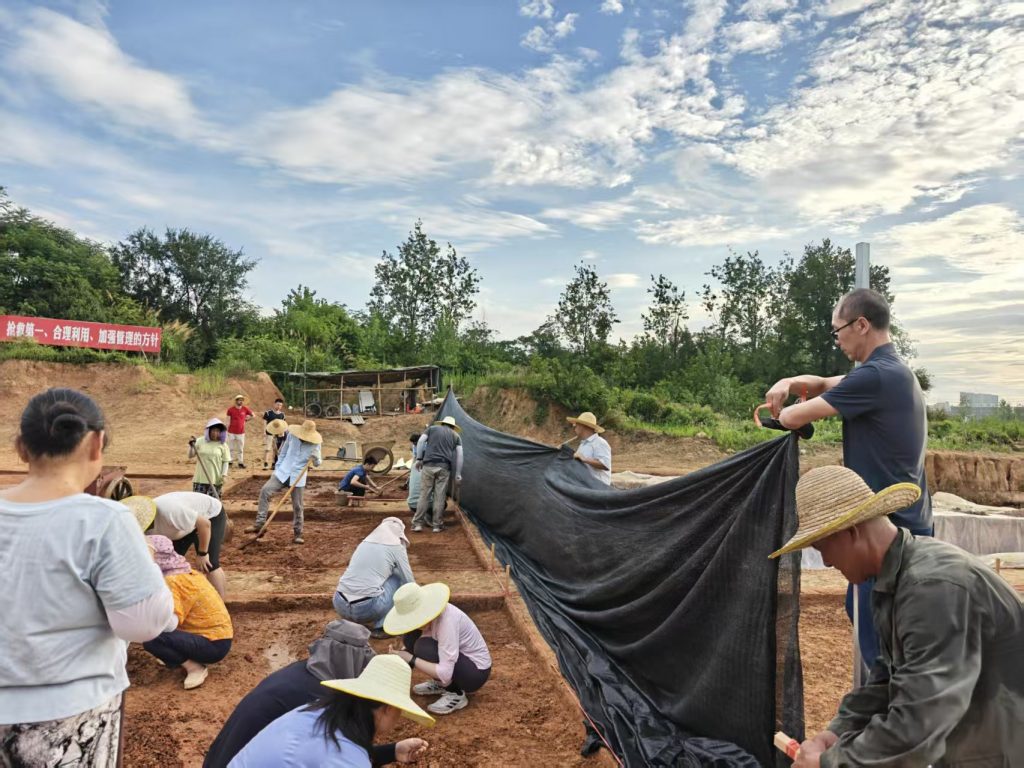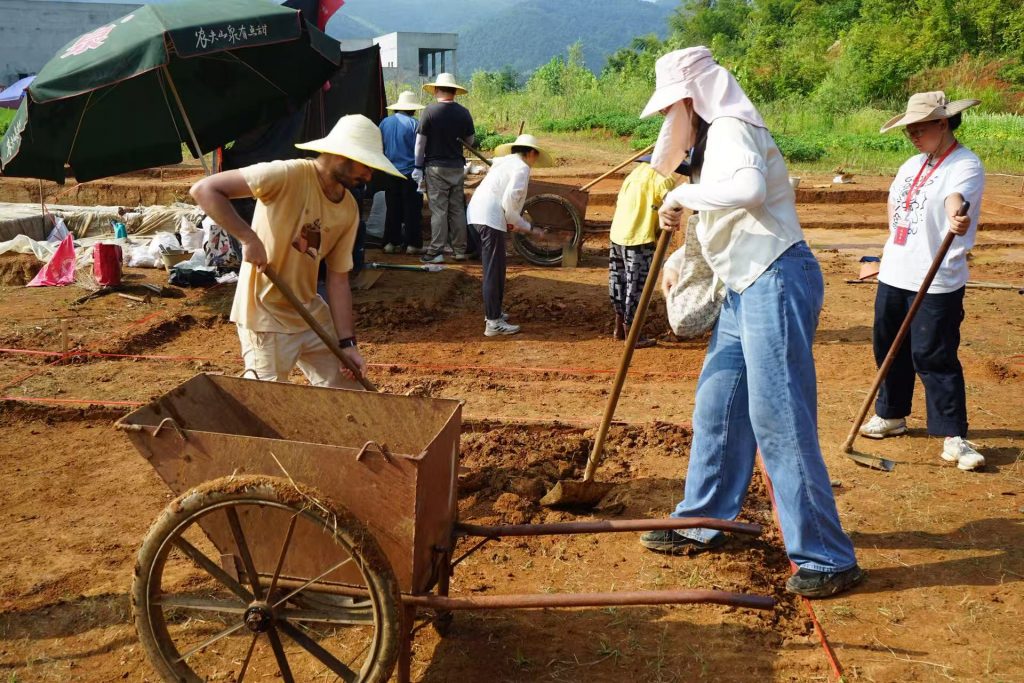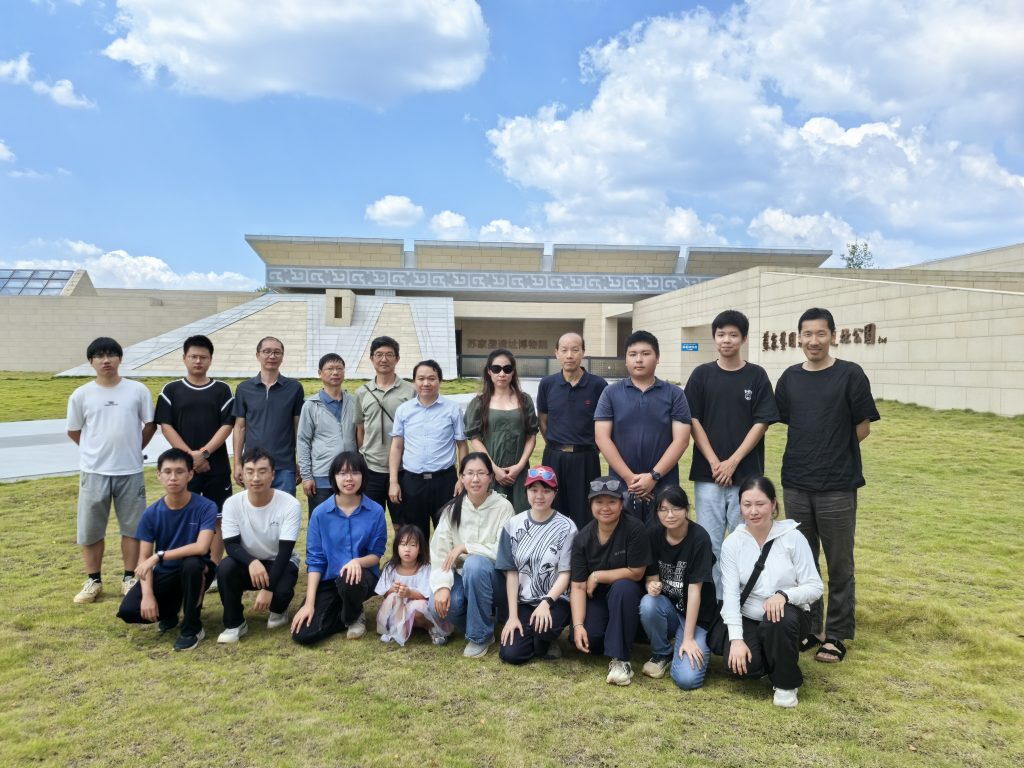
In June of this year, two students from the Department of History of the University of Macau (UM), Ren Wenzhe and Peng Xiao, completed an archaeology summer internship under the cooperation between the University of Macau and the Hubei Provincial Institute of Cultural Relics and Archaeology (Hubei Provincial Archaeology Museum) at the Sujialong relics in Jing Shan city, Hubei Province. During the 8th to 4th centuries B.C.E., the Sujialong relics were large urban relics of the Zeng kingdom that contain noble tombs, large architectural structures, and smelting workshops, from which numerous precious bronze objects and important archaeological remains have already been excavated.
Under the direction of the head of Hubei Provincial Institute of Cultural Relics and Archaeology, Mr. Fang Qin, and Dr. Xu Qian from Wuhan University, the two UM students learned the archaeological sketching and ornamentation description of objects, as well as relics preservation and repair through record collating, relics visiting, and object tidying. They felt the charm of archaeology by handling the bronze wares and potteries that were excavated from the Sujialong relics at close range.
Peng Xiao, an undergraduate student from the History Department of UM, considered the study trip a very precious opportunity for her to not only acquire the knowledge of the Zeng kingdom but also to explore more about archaeology. She was given the chance to encounter relics at close range and comprehend the meaning behind them.
From July to August this year, Ren Wenzhe, a history graduate student from UM, participated in the “Chibi Dahuzui International Field Archeology Summer School” held at Chibi city in Hubei Province. This program was held by Hubei Provincial Institute of Cultural Relics and Archaeology, and aided by Chibi Vocational School and Chibi City Museum, with Nanjing University, University of Macau, City University of Hong Kong, and Taiwan Chung Hsing University being the cooperative institutions. The summer school aims to help students construct a scientific and complete field archaeological procedure through the combination of multidisciplinary advanced academic studies and the training and practice of field archaeology. In addition, by the scientific study and practice of field archeology, this program also hopes to strengthen the cultural interaction and cooperation among the China mainland, Hong Kong, Macau, and the Taiwan region, and internationally.

Eleven students participated in this 45-day summer school, who came from the University of Macau, City University of Hong Kong, Taiwan University, Taiwan Chung Hsing University, Aristotle University of Thessaloniki, Nanjing University, and Wuhan University. Students participated in the excavation of the Chibi Dahuzui Western Zhou urban relics in depth, and completed the practice of archeology and the extension of knowledge of relics through multi-dimensional activities such as field excavation, course training, laboratory analysis, visiting investigation, and academic meetings.
During the event, students participated in field archaeology excavation, collating data, and laboratory analysis under the direction of teachers. In addition to the training of traditional archaeological skills, the students also gained knowledge such as computer mapping, 3D modeling, field mapping, and digital archaeology, which not only enhanced their comprehensive abilities but also inspired their interest in the study of new interdisciplinary fields of archaeology.
The Summer School also organized trips for students to visit famous archaeological relics museums such as Huangpi Panlongcheng relics, Tonglu Mountain ancient copper mine relics, Jingshan Sujialong relics, and Jinzhou Chujinancheng relics. In addition, they also participated in the “Chinese Southern Early Tin Ware academic seminar”, learning about the latest studies of Hubei archaeology.

Ren Wenzhe suggested that the summer school not only had an international academic environment but also allowed her to make new friends, especially through her interaction with students from Hong Kong, Taiwan, and Greece. She believed that this experience both expanded her academic horizon and inspired the reflection of her study direction, solidifying her determination to keep exploring the path of academia.
The cooperation agreement between the University of Macau and Hubei Provincial Institute of Cultural Relics and Archaeology, led by the History Department of the University of Macau, will be signed in the second half of this year. As the person directly responsible, the UM history Professor Wu Dongming suggested that this cooperation will further inspire and help the students and teachers from the University of Macau in archaeological practice in mainland China. Besides fostering trans-organization and interdisciplinary academic cooperation, this agreement will enhance the publicity of the University of Macau in the Chinese mainland, inspiring the Macau residents’ interest in archaeology and Chinese traditional history and culture.


